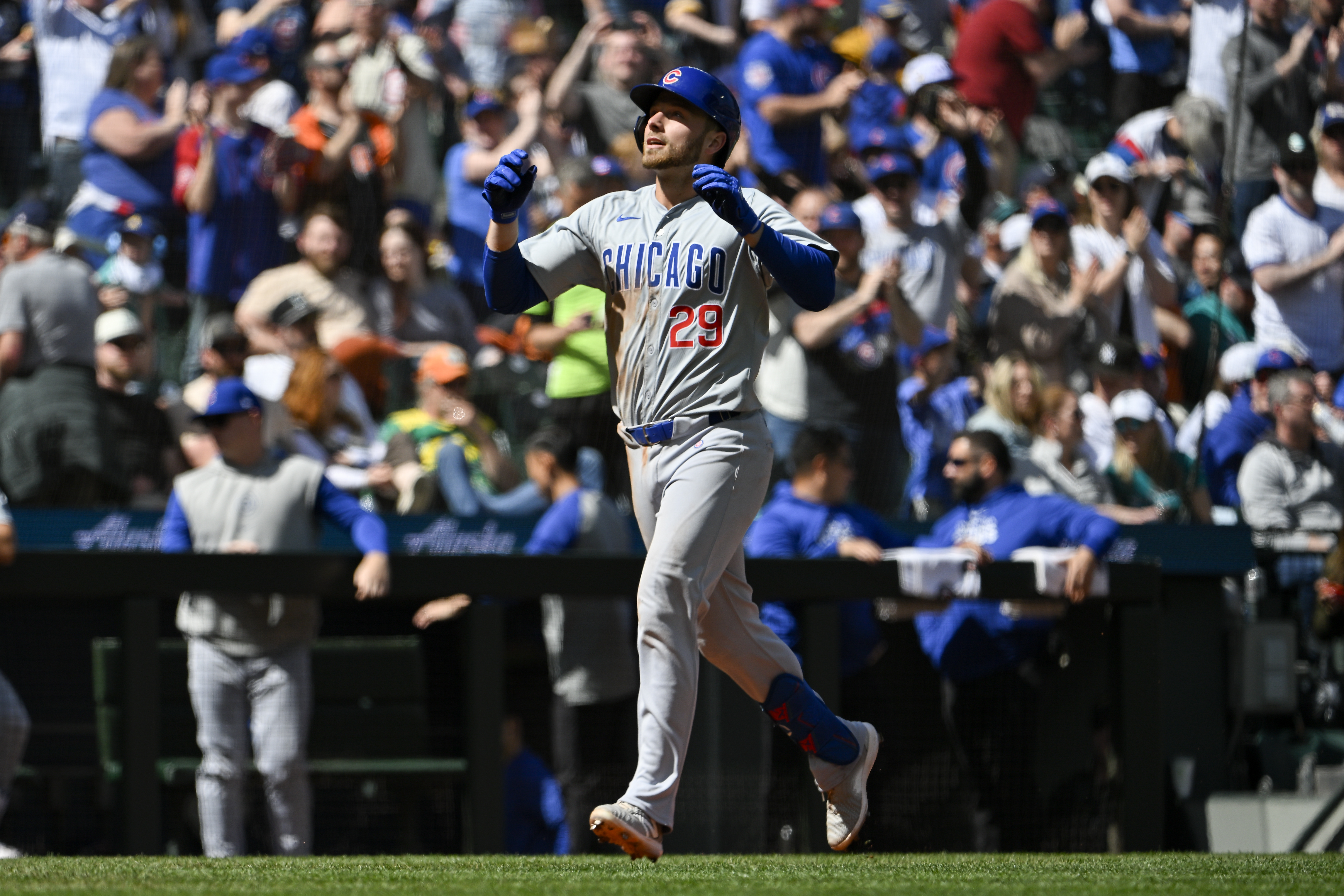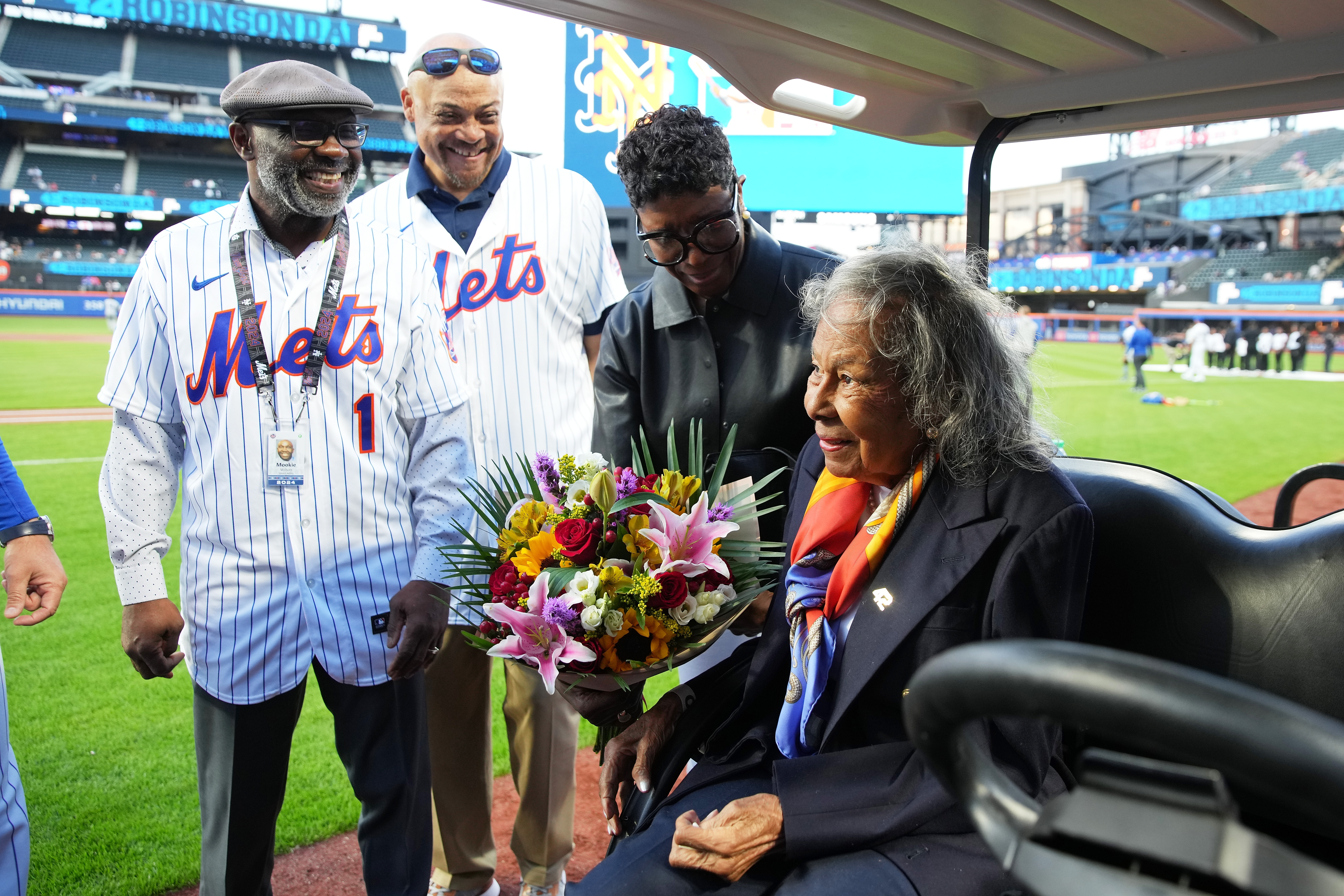
Cliff Floyd landed in Fort Lauderdale – the night before a gunman opened fire in a South Florida airport terminal – and could immediately sense something already went wrong by the way his phone started buzzing.
The news rippled throughout the baseball community last week: Cubs scout Stan Zielinski, 64, had died suddenly overnight at his home in Chicago's western suburbs. The sense of loss hit Floyd hard, because he placed so much trust in Zielinski as a Thornwood High School senior, believing what this guy from the Montreal Expos kept telling his family before the 1991 draft.
"Not one lie ever came out of this man’s mouth," Floyd said. "Stan was so genuine, man, and just so real with everything that a young kid needed."
The Cubs will miss that presence in the Wrigley Field clubhouse this week when team officials hold their kickoff meetings for the 2017 draft – and remember Zielinski's invaluable contributions to a World Series champion before Wednesday's funeral service at St. John the Baptist in Winfield.
Zielinski spoke with conviction and authority, scouting for the last 38 years and working for the Cubs since 2001, fitting into front offices run by Andy MacPhail, Jim Hendry and Theo Epstein.
Zielinski could shift between the pro game and amateur scouting, recommending Hendry acquire Chris Archer from the Cleveland Indians in the Mark DeRosa trade and reinforcing what Epstein saw in Kyle Schwarber at Indiana University.
Zielinski, who went to Loyola Academy on the North Shore, could also make connections in South Holland with Floyd’s mother, Olivia, and father, Cornelius, convincing them that the Expos would take their son with the 14th overall pick, launching what became a 17-year career in the big leagues and a second act as a broadcaster with MLB Network and SiriusXM Radio.
MLB
"It's having the ability to be the calm in the storm," Floyd said, "in any environment. Whether you're in the hood or the suburbs, it doesn't matter, because you have to be able to change your vibe going to different households. You can’t just be one-dimensional.
"That's an ability or a quality that not a lot of people possess. And when you have it, you have it.
"I'm a mama's boy. Stan realized he had to put the full-court press on her, or it's not going to work.
"The rest is pretty much history."
It became a two-man operation. Floyd, the Chicago Tribune's 1991 Athlete of the Year, had committed to play for Hendry at Creighton University. Standing in the family's driveway, Hendry asked Floyd what he wanted to do – turn pro – and told him he would go inside and try to influence Olivia.
Hendry explained how he couldn't promise that he would be at Creighton forever. That candid admission eventually caught the attention of Montreal general manager Dave Dombrowski, who would later help Hendry make the jump to pro baseball with the expansion Florida Marlins and make Floyd a part of the 1997 World Series team.
Zielinski arranged for the Expos to deliver a $290,000 bonus and a clause in the contract that included money for college, allowing Floyd to take some offseason business classes at DePaul University and please his mother.
"She was such a big advocate of education that she was like: 'You're going to college,'" Floyd said. "She was just so big on who was going to take care of her baby when I was finally out of her eyesight after 18 years.
"These two guys were literally godsend, bro. They were literally everything you could possibly want your kid to be involved with. Without one, maybe you couldn't have the other.
"But I think when you look at how it all transpired for me, it was crazy, because my mom was so strong-willed at getting you to see it her way or the highway.
"When he finally said, 'Your mom is on board,' I thought he was crazy. I go: 'Stan, get your ass out of here. There ain’t no way. She just told me last night she wouldn’t do it.'"
Fifteen years later, Zielinski helped Hendry put together a $10 million deal that infuriated Bud Selig – the Major League Baseball commissioner at the time – and priced a Notre Dame All-American out of the NFL draft.
"I'm in debt to him big-time," Jeff Samardzija said. "The more I talked to (Stan), and the more I saw that he was watching me, (and) the more they really explained to me why they felt (it would work), it just started to make the option a little bit more realistic for me. Whereas before it was maybe just a long shot or a pipe dream to involve baseball in my professional life.
"Sometimes, it takes other people believing in you for you to really start believing in yourself. I know he saw me play more in college probably than any other scout or GM or crosschecker or whatever. I knew his opinion of me was pretty solid – and it wasn’t wavering."
Where the St. Louis Cardinals asked Samardzija "mind-game questions on if I remembered the scout’s name," Zielinski used the same direct approach that worked on the Floyd family, explaining how he would need to improve his off-speed pitches and really sharpen his slider to become the frontline starter the Cubs envisioned.
"(It's talking) to you with that tone that you’re not a kid – you’re a grown man," Samardzija said. "He was one of the few guys that talked to me about baseball, and not about trying to convince me to play baseball, if that makes sense.
"When I met with scouts, a lot of them were just trying to feel me out if I was serious about playing baseball, why I wanted to try and play two sports, things like that, trying to get in my head.
"That was never the case with Stan. It was more about baseball itself – the games I've pitched, my repertoire on the mound – which I found very refreshing. And that was a big reason why I was open to committing my future to the Cubs."
Before Samardzija got traded to the Oakland A's for future All-Star shortstop Addison Russell, Epstein had asked him to watch video of a college hitter who intrigued the Cubs with the No. 4 pick in the 2014 draft.
Zielinski – an area scout covering Illinois, Indiana, Iowa, Minnesota and Wisconsin – recognized Schwarber's vicious left-handed swing and intangibles in the same way that he projected Samardzija’s 6-foot-5 frame and natural athleticism could translate into 200 innings a year and a $90 million investment from the San Francisco Giants.
"There was nowhere to play him," Samardzija said, repeating the conventional wisdom that framed Schwarber with the Hoosiers. "This kind of describes Stan: 99 percent of the people look at the negatives. 'Ah, he can’t play here. He can’t play there.' Whereas a guy like Stan says: 'Well, timeout here. There’s something special that I like about this guy that we need to fit into the system, regardless.'
"In all sports, but especially baseball, it’s easy to get caught up in looking at the negatives and what a guy can’t do, instead of maybe possibly looking at what he can bring to the organization in a positive light.
"You've seen what Schwarber’s done for momentum for that team, with big hits and just a personality that fits. A guy like Stan, there's not too many of them out there that can see that side of things (and) not necessarily just nitpick at things kids can't do."
That’s what made Zielinski such an important voice inside the Cubs, even if you never really saw his name quoted in the newspaper or his face on TV.
"Certain people have the knack," Floyd said. "He was never awkward. It was always fluid with our conversations. It was never where we sat down and it felt like: 'God, I can’t wait for this s--- to be over.' It was always cool, calm and collected. I loved it. That’s why I hurt so bad when I (found out and) got off the plane.
"I had to sit there for a second and just reflect on how wonderful this dude was."


